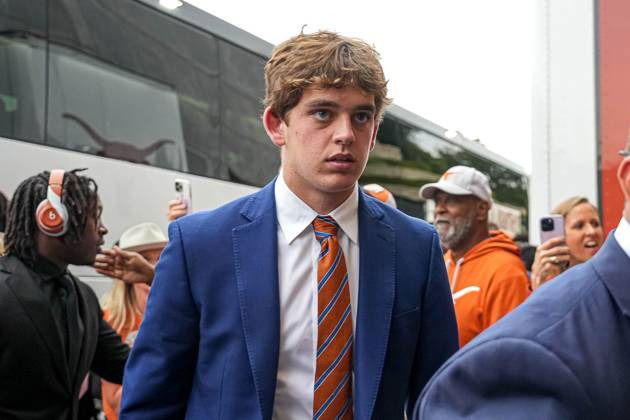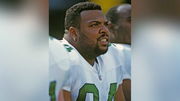

Football greatness doesn’t always shield a man from life’s toughest battles. And a coaching legend with 317 career wins and a lasting legacy at Baton Rouge’s Catholic High now confronts Parkinson’s and dementia. But even as his health deteriorates, he inspires like a true star. Now, his longtime friend and Arch Manning’s grandfather, Archie Manning, remains by his side like a true teammate, sharing memories and celebrating his induction into the Louisiana Sports Hall of Fame. Through it all, Louisiana’s legendary coach keeps his head high, as champions don’t just win games; they conquer adversity.
Watch What’s Trending Now!
A struggling program’s turnaround needs more than a manual; it demands visionary leadership. Dale Weiner resurrected the Catholic High football program in Baton Rouge. Taking the reins in 1987, he spent 30 seasons building a consistent winner from a mediocre team. His 282 victories, averaging over nine per year, included 18 district titles, 15 state quarterfinal appearances, eight semifinal appearances, and a state runner-up finish. The pinnacle arrived in 2015, a thrilling state championship win over nationally ranked Rummel—Catholic High’s first ever. Weiner’s success transcended Xs and Os; he cultivated a culture of excellence.
Even the strongest rocks succumb to relentless winds, but Dale Weiner refuses to crumble. Despite battling declining health, he stands tall, his legacy echoing louder than any illness. His lifelong dedication to the game is etched in victories, championships, and lives transformed. Longtime friend and football legend Archie Manning readily praises Weiner, saying, “We started our camp. I don’t know how many coaches we had, but maybe 15 or 20. But of course, Dale Weiner was a Catholic High camper in that first year, as was Major Applewhite, and so Dale coached with us several years, and then he moved on, but I’ve kept up with him. Newman played against his son. They whipped us, and I kept over there.”
ADVERTISEMENT
Beyond Weiner’s coaching abilities, Manning also remembers the person he is. While Weiner enters the Louisiana Sports Hall of Fame, Manning celebrates but worries about his friend. “I was so excited to see him go to be going into the Louisiana Sports Hall of Fame, well deserved. And I’m sad to hear that his health is not great. I sure hope he can go. I know he’s a great coach, but he’s a heck of a guy,” Archie Manning said.
“I was so excited to see him going into the Louisiana Sports Hall of Fame.”
The legend Archie Manning sends his best to Catholic High coaching great Dale Weiner, who is battling Parkinson’s and dementia.
“I know he’s a great coach, but he’s a heck of a guy.” pic.twitter.com/brkMZSFR4U
— Jacques Doucet (@JacquesDoucet) June 29, 2025
It’s no surprise he made it into the Louisiana Hall of Fame. Don Hood, Weiner’s longtime assistant, frankly described the situation Weiner inherited. “We were bad. … Everybody wanted to schedule us for their homecoming game,” Hood said. “We were called a lot of things that weren’t very nice that I won’t repeat.” But Hood saw something in him since day 1. “When Dale got there, I knew things would change because I knew Dale. He was always that guy… bright, could motivate people, and knew football,” Hood added.
ADVERTISEMENT
And he actually proved his worth. Weiner coached 143 college-bound players, 17 of whom—including stars like Warrick Dunn and Travis Minor—made it to the NFL. His commitment to discipline and strength also led Catholic’s weightlifting team to 18 state championships, earning him a place in Gayle Hatch’s Louisiana Weightlifting Hall of Fame. Weiner saw potential where others saw a rebuilding project, rolling up his sleeves to prove it. But what drove Dale Weiner?
ADVERTISEMENT
Dale Weiner’s motivation to thrive
Some moments ignite not just passion, but a lifelong flame. Dale Weiner still recalls the play that defined his future. A wide-eyed five-year-old, watching from the end zone, he saw Baton Rouge High’s Jimmy Taylor score the winning touchdown, a move so fluid it became etched in his memory. “I watched Jimmy Taylor score a winning touchdown,” Weiner said. “It was just the way he angled his body to get between two defenders. I had never seen anything like that. He scored, and Baton Rouge High won. I was so excited. That was it—I knew football was something I had to be part of.” That spark lit a fire that never burned out.
Weiner, like all great coaches, had a mentor: the late Murrell “Boots” Garland. Following his time as a lineman at Baton Rouge High, Weiner saw Garland as a mentor, not just a coach. “Coach Garland had a way of drawing people to him,” Weiner said. “He had a sense of humor and a way of getting a point across. He could be tough when he needed to be. I loved playing for him. I knew I wanted to be a coach after watching him.” Weiner dreamed of coaching at Baton Rouge High, but the school became a magnet school without football, altering his path. His path took a detour—but only by a few miles across Government Street, eventually leading to Catholic High.
Top Stories
Chiefs Threaten Kansas Exit Over $3 Billion Dispute as Clark Hunt & Ownership Demand a ‘Landlord’ for New Stadium

Chiefs Officially Cut Ties With Super Bowl–Winning Coach as Travis Kelce Could Delay Retirement With Ex-Coach’s Return

Former Eagles & Raiders Star Found Dead Near LA Homeless Camp as Homicide Investigation Begins

Novak Djokovic Avoids Australian Open Disqualification After Nearly Hitting Ball Kid

Naomi Osaka Withdraws From Australian Open Hours Before Her Match Over Injury Concerns

Mysterious Health Issues Force 3 PGA Tour Pros to Exit $9.2M Tournament Midway

His first assistant coaching job was in 1975 at Catholic-Pointe Coupee under Jim Hightower, now Louisiana’s second all-time winningest coach. Even that first season had its moments. “Our player was running down the field to score the winning touchdown, and I started jumping up and down in the press box,” Weiner recalls, chuckling.
ADVERTISEMENT
Dale Weiner’s exuberance during his first coaching stint at Catholic-Pointe Coupee in 1975 proved memorable, albeit disruptive. Celebrating a last-second touchdown, he jumped up and down in the press box next to the camera, ruining the game-winning play’s film. His wife, Lindy, chuckled, recalling head coach Jim Hightower’s reaction: “In that moment, Jim was so mad at Dale.”
Despite the mishap, Weiner didn’t miss a beat. Weiner built a strong coaching career at St. John-Plaquemine, Catholic-PC, and Trafton Academy (now The Dunham School). Despite an initial rejection from Catholic High, his persistence paid off; he eventually secured the position. “I was meant to be at Catholic High. … I believed that from the time I first applied,” he reflected. This unwavering belief and his lasting impact culminated in his induction into the Louisiana Sports Hall of Fame.
ADVERTISEMENT
ADVERTISEMENT
ADVERTISEMENT



